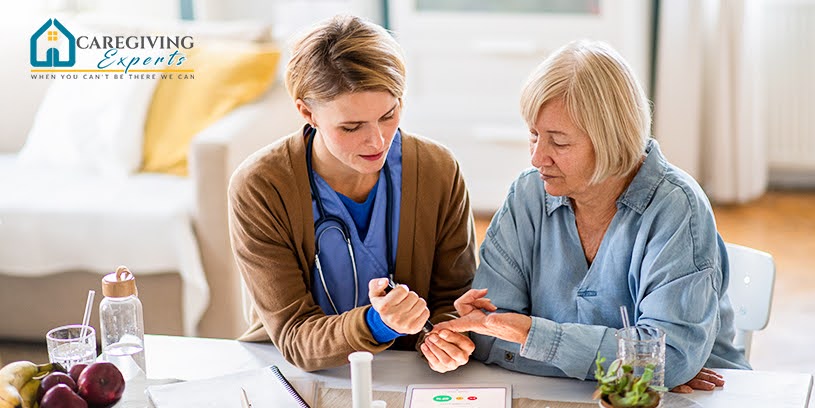Ensuring Safety and Comfort at Home
When caring for a loved one at home, safety and comfort are top priorities. In-home caregivers are crucial in providing support and assistance, ensuring individuals can recover and rehabilitate in a familiar environment. With a focus on personal care and companionship, caregivers help maintain a sense of independence while offering essential health monitoring services.
Understanding Different Types of In-Home Care
There are two primary types of home care: Skilled Home Care and Private Duty Home Care. Skilled home care involves medical services provided by trained professionals, while private duty home care focuses on non-medical assistance, such as companionship and personal care. Both types contribute significantly to health monitoring, ensuring early detection of potential health concerns.
The Role of Companion Care in Health Monitoring
Companion care services go beyond social interaction. Caregivers assist with housekeeping, transportation, shopping, and meal preparation. By being present daily, they can observe any physical or behavioral changes in their clients, helping identify early signs of illness or declining health. Regular monitoring allows caregivers to alert family members or medical professionals when necessary.
Personal Care: Hands-On Support for Better Health
For individuals needing more direct assistance, personal care services provide hands-on support, including bathing, dressing, and feeding. These caregivers help maintain personal hygiene and ensure medication adherence. Through close interaction, caregivers can monitor changes in appetite, mobility, and overall well-being, which is crucial for early intervention.
Specialized Care for Chronic Conditions
Caregivers with expertise in specialized areas provide essential health monitoring for individuals with chronic medical conditions such as:
- ALS
- Alzheimer’s/Dementia
- Diabetes
- Heart Disease
- Multiple Sclerosis
- Parkinson’s
- Stroke Recovery
These professionals are trained to recognize symptoms associated with these conditions, ensuring that patients receive timely medical attention. Regular health assessments can prevent complications and improve the quality of life.
Comprehensive Care Services for Post-Surgical Recovery
For those recovering from surgeries or medical treatments, caregivers offer specialized services such as:
- Cancer Treatment Support
- Heart Surgery Recovery
- Joint Replacement Rehabilitation
- Orthopedic Surgery Support
- Eye Surgery Recovery
By assisting with mobility, medication reminders, and post-surgical care, in-home caregivers play an essential role in the recovery process.
24-Hour and Live-In Care for Continuous Monitoring
Some individuals require constant supervision due to health conditions or mobility issues. 24-hour live-in caregivers ensure that there is always someone available to provide support, administer medication, and respond to emergencies. Continuous monitoring helps prevent falls, manage symptoms, and provide immediate medical intervention when needed.
Hospital Discharge
Transitioning from hospital to home can be challenging. Caregivers assist with hospital discharge services, ensuring patients follow their treatment plans correctly.
Enhancing Quality of Life Through Companionship
Loneliness and social isolation can negatively impact physical and mental health. Companionship services help alleviate loneliness by engaging clients in conversations, activities, and outings. These interactions contribute to emotional well-being and encourage a more active lifestyle, which is beneficial for overall health.
Respecting Dignity and Privacy in Care
Maintaining personal dignity and privacy is essential in caregiving. Professional caregivers ensure that individuals feel respected and comfortable while receiving assistance. This approach fosters trust, making it easier for clients to accept help and adhere to health monitoring recommendations.
Final Thoughts
Regular health monitoring by in-home caregivers provides peace of mind to families and enhances the well-being of those receiving care. Whether through companion care, personal assistance, or specialized medical support, these services contribute to early detection of health issues, better recovery outcomes, and an improved quality of life. Choosing the right caregiver ensures that your loved one remains safe, secure, and well-cared for in the comfort of their home.
Partner with Caregiving Experts Today
If you are looking for compassionate and professional in-home care for your loved one, our team of experienced caregivers is here to help. Contact Caregiving Experts today to learn more about how we can support your family.
Frequently Asked Questions
- What services do in-home caregivers provide?
In-home caregivers offer personal care, companionship, health monitoring, transportation, and specialized care for chronic conditions. - How do caregivers monitor health at home?
They observe changes in physical and mental health, assist with medication management, and coordinate with healthcare providers if needed. - Can caregivers assist with post-surgical recovery?
Yes, they provide support for individuals recovering from surgeries, ensuring they follow medical guidelines and receive necessary assistance. - Is 24-hour live-in care available?
Yes, we offer round-the-clock caregiving services for those who require continuous supervision and assistance. - How can I choose the right caregiver?
Consider your loved one’s specific needs, ask about caregiver experience, and ensure they provide personalized care that matches your requirements.


